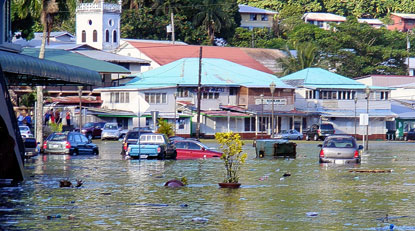The massive earthquake that rocked Japan on 11th March has not only devastated human life and economy, but has also shortened the length of a day on the Earth. It has also shifted the mass of the planet and shortened the day of the Earth by a fraction.
A scientific analysis has shown that the intense temblor generated from the earthquake has increased the spin of the Earth. As a result, the length of the 24 hours day has become shortened by 1.8 microseconds. This has been observed by Richard Gross, a noted geophysicist working at NASA.
A microsecond is considered to be the millionth of a second. Since the distribution of the mass of the Earth has changed, the Earth is expected to rotate a bit faster and this will obviously shorten the length of the day by 1.8 microseconds. The earthquake in Japan has made the mass of the Earth get shifted towards the Equator.
Initial data collected by NASA suggested that the Japan earthquake has moved the island by 8 feet. The Japan earthquake 2011 has also shifted the figure axis of the earth by 6.5 inches, which is approximately 17 centimeters. Figure axis is very important as the mass of the Earth is balanced around it.
However, this is not for the first time that a major tremble has changed the length of the day. Massive earthquakes held in the past have also changed the length of the day by microseconds. The massive earthquake held in China last year has also shortened the length of the day by 1.26 microseconds.
Japan earthquake 2011 is the largest ever earthquake recorded in Japan and it has also been recorded as the fifth largest earthquake to strike on this earth since the year 1900. The earthquake has already expected to have killed 10,000 people and has destroyed the country’s power supply and the economy as well.




